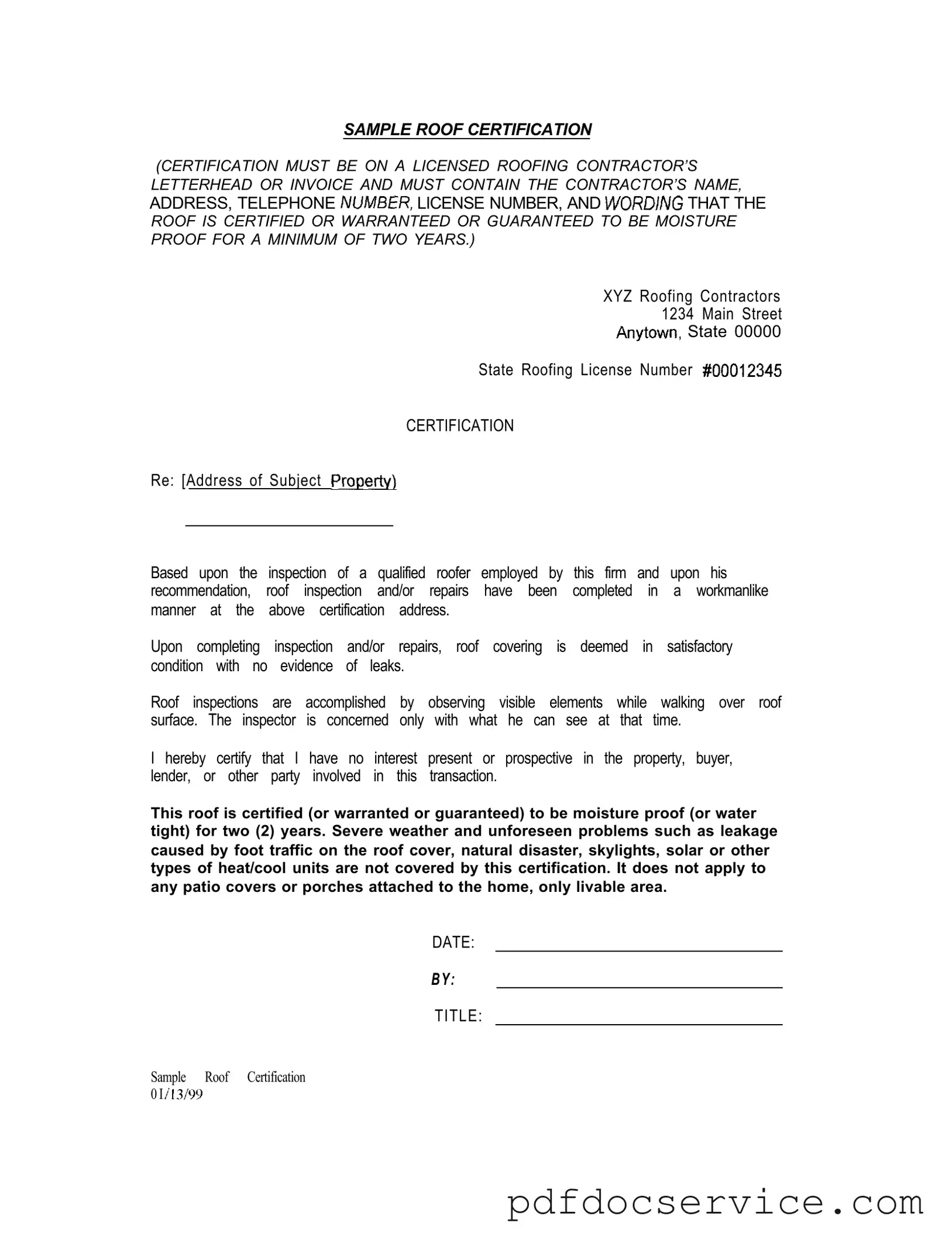Fill Your Sample Roof Certification Form
The Sample Roof Certification form serves as a formal declaration by a licensed roofing contractor, affirming that a roof has been inspected and is certified to be moisture-proof for a specified period. This document must be printed on the contractor's letterhead and include essential details such as the contractor's name, address, and license number. It is important for property owners and buyers to understand the conditions and limitations outlined in this certification.
Open Sample Roof Certification Editor

Fill Your Sample Roof Certification Form
Open Sample Roof Certification Editor

Open Sample Roof Certification Editor
or
Get Sample Roof Certification PDF
Finish the form now and be done
Finish Sample Roof Certification online using simple edit, save, and download steps.